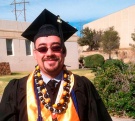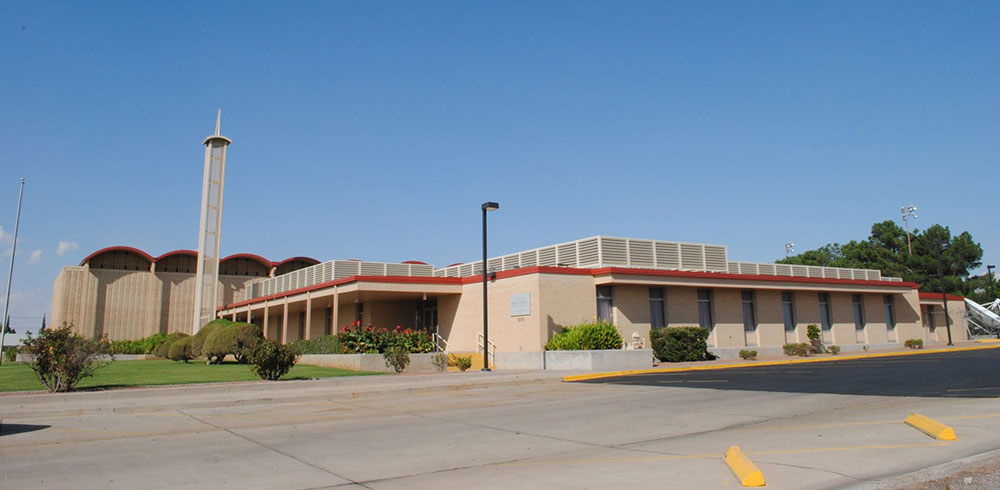EL PASO —The two candidates running for the presidency in a close election face questions about the fate of the U.S. economy, poverty and discrimination, but aside from these traditional political issues, republican candidate Mitt Romney has to deal with questions about his Mormon faith.
We are not only talking about 2012. This happened to John F. Kennedy in 1960 when voters wanted to know if his Catholic faith would make him subject to edicts from the Vatican.
![DSC_0996[1] Temple of the El Paso Texas Stake at 1212 Sumac. (Elliot Torres/Borderzine.com)](http://borderzine.com/wp-content/uploads/2012/10/DSC_09961.jpg)
Temple of the El Paso Texas Stake at 1212 Sumac. (Elliot Torres/Borderzine.com)
Though the Mormon church has existed for well over a century and half, and was founded in America, it is still misunderstood by many. Much like Kennedy did in the 1960 presidential campaign, Romney is facing questions about his membership in the Church of Jesus Christ of Latter Day Saints and whether or not it could affect his presidency.
Looking at politics through a historical lens, religion or religious doctrine has exerted its influence in some of the most important moments in our country’s history.
Charles Boehmer, associate professor of political science at the University of Texas at El Paso, pointed out that the influence of religion in politics is not constant and it comes in episodes.
“It depends on what the social issues are at the time,” Boehmer said. “[When] some segment of the population feels that there is a crisis in society, then you find that religion is one of the basis for politics.”
Mormonism has a unique place in American society. The creation of the church happened in the same area where the country was born. The church’s founder, Joseph Smith, was born in Vermont, and reported receiving the vision that was the basis for the creed in upstate New York.
Leaders of the church eventually left their homes and moved west to avoid religious persecution. Like to the pilgrims heading to Plymouth Rock to escape the repressiveness of the British Crown.
Despite the Mormon church’s deep roots in U.S. history, it struggles to find acceptance in American culture and faces an image problem that has resurfaced in the current campaign.
Here in the southwest, the church is well established and known. In fact there are about 9,ooo members in El Paso. However, in other parts of the country Mormonism is not as prevalent.
“Because the church has been so entrenched in this area, for such a long period of time I think knowledge about the Church of Jesus Christ of Latter Day Saints is much greater [here]. Back on the eastern coast, not as much,” said Robert Dinsmoor, member of the church and public affairs director for the El Paso Texas Mount Franklin Stake.
The LDS church is one of the fastest growing churches in the country. In this election year alone there were two Mormons running for the Republican nomination, Romney and Jon Huntsman. Across the aisle Harry Reid is both a leader in the Democratic Party and a Mormon. The religion that once fled discrimination in the United States now has members in prominent political positions.
“The religion plays a role, probably for and against Romney,” Boehmer said.
He explained that there are two groups who would define Romney’s religion as negative – people who would not vote for Republicans anyway because of the conservative religious tone in this party and conservative southern Baptist-type voters who don’t agree with Mormonism.
Despite these voter’s negative views about the religion, Boehmer believes that Romney will be able to draw some support from them. “It’s conceivable that some of those folks may hold their nose and vote Republican just because they may see it as the lesser of two evils,” Boehmer said.
Some within the church see a potential benefit from the increased attention to their faith. Sally Dinsmoor, member of the LDS church and public affairs director for the El Paso Texas Mount Franklin Stake, said the current interest will lead people to a better understanding of the religion.
“I think it’s a good thing. I just think knowledge is a good thing, for people to learn and have better understanding,” says Dinsmoor.
So, just how big of an issue will Romney’s religion be when election day rolls around won’t be clear until November 6, but there are some indications that it may not be the deciding factor in Romney’s fate.
According to an ABC News/Washington Post poll conducted in July, nearly half of adults nationwide said that it didn’t matter to them if a presidential candidate shared their religious beliefs.
Talking to everyday people on the street, most seem to echo that sentiment. With most people’s minds on problems that impact them personally like the economic downturn, the faith of a particular candidate may not be enough to sway them. As UTEP student Efrain De Lara said, “I don’t think him [Romney] being a Mormon would affect anybody.”



Yeah, I hate to burst your bubble but your picture is not a picture of an LDS Temple. That is a meeting house, or chapel that we use for worship services and activities. Temples have a different purpose and are not used for Sunday worship. In fact, they are closed on Sunday. But, it turned out well because it demonstrates just what you say in the article, the Church is “still misunderstood by many.”